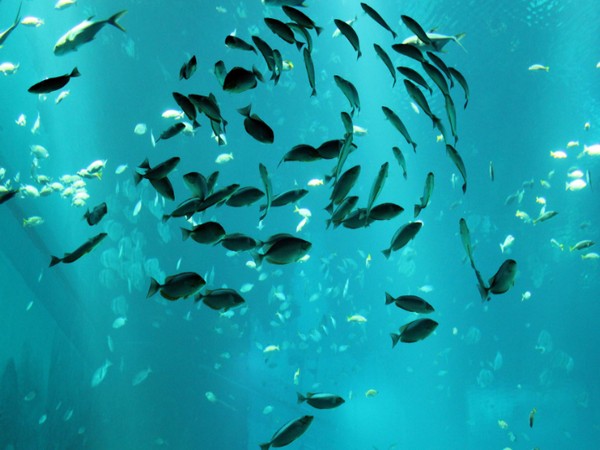Study reveals 91 per cent of India's marine fish stock is healthy; supports country's stance at WTO

- Country:
- India
India's marine fish stock is healthy and sustainable, reinforcing the country's position at the World Trade Organisation (WTO), according to a new study.
The ICAR-Central Marine Fisheries Research Institute (CMFRI) study unveiled by Union Fisheries Minister Parshottam Rupala has pointed out that a resounding 91.1 per cent of the 135 fish stocks assessed in 2022 were deemed healthy, marking a significant milestone in India's efforts to maintain the sustainability of its marine fisheries.
Titled 'Marine Fish Stock Status of India 2022', the report also highlighted the substantial reduction in unsustainable practices, with just 4.4 per cent of the stocks facing overfishing.
The minister released the report during the eighth phase of 'Sagar Parikrama' programme in the southern districts of Tamil Nadu on Thursday, a CMFRI release said here on Friday. The programme aims to create awareness about sustainable fishing practices.
Viewing the findings of the report as a remarkable achievement in the country's pursuit of sustainable marine fisheries, CMFRI Director Dr A Gopalakrishnan said they would substantiate India's position at the WTO and are anticipated to have a favourable impact on the country's stance in international trade negotiations.
He also pointed out that this would create a positive impact on boosting India’s seafood trade.
''The report's findings are expected to be a gamechanger in the seafood market, allowing India to access premium markets and command higher prices for its seafood products. Sustainability has emerged as a pivotal criterion in the global seafood trade, and India's achievement in this realm is poised to bolster its seafood exports significantly,'' Gopalakrishnan said.
These findings are a testament to the concerted efforts of the marine fisheries sector to strike a balance between economic growth and ecological conservation, he added.
The report provides an overall assessment of the fish stock status under the prevalent fisheries management regime in the country, following the FAO's sustainability indicators criteria based on the concept of Maximum Sustainable Yield (MSY).
It covers a wide variety of fisheries resources harvested along the Indian coast, ranging from the long-lived, slow-growing elasmobranchs (such as sharks and rays) to the fast-growing and short-lived invertebrates such as squids and penaeid prawns.
The report has used widely accepted micro-analytical assessment models to arrive at the stock status.
Currently, only 70 species have been assessed. However, seer fish, shad (Hilsa), threadfin, and other prioritised species can be evaluated in the future, it said.
CMFRI's special publication titled 'Good Management Practices in Seaweed Farming' was also released by the union minister on the occasion. CMFRI said it has identified 333 prospective seaweed farming sites covering 23,950 hectares.
An interactive map of these sites has been developed jointly with the National Centre for Sustainable Coastal Management, Chennai. Seaweed farming has the potential to provide revenue of up to Rs 13.28 lakh per hectare in a year on a dry-weight basis.
India has a coastline of 8,118 km and an Exclusive Economic Zone of 2.02 million sq km, which harbours 2,275 species of teleosts (most fish varieties), 174 species of elasmobranchs, 3,400 species of molluscs, 2,783 species of crustaceans, 936 species of seaweeds, 14 species of seagrasses, 765 species of echinoderms (starfish, sea urchins, sea cucumbers etc), and 486 sponges. Of these, 1,000 species contribute to commercial fisheries and are harvested by nearly 30 fishing craft-gear combinations operating in various regions of the Indian seas. In 2022, the landing centre value of marine fisheries of mainland India was estimated at Rs 58,247 crore, providing livelihood and nutritional security to over 28 million stakeholders.
The ICAR-Central Marine Fisheries Research Institute (CMFRI) is the largest organisation dedicated to marine fisheries research in the country.
(This story has not been edited by Devdiscourse staff and is auto-generated from a syndicated feed.)










